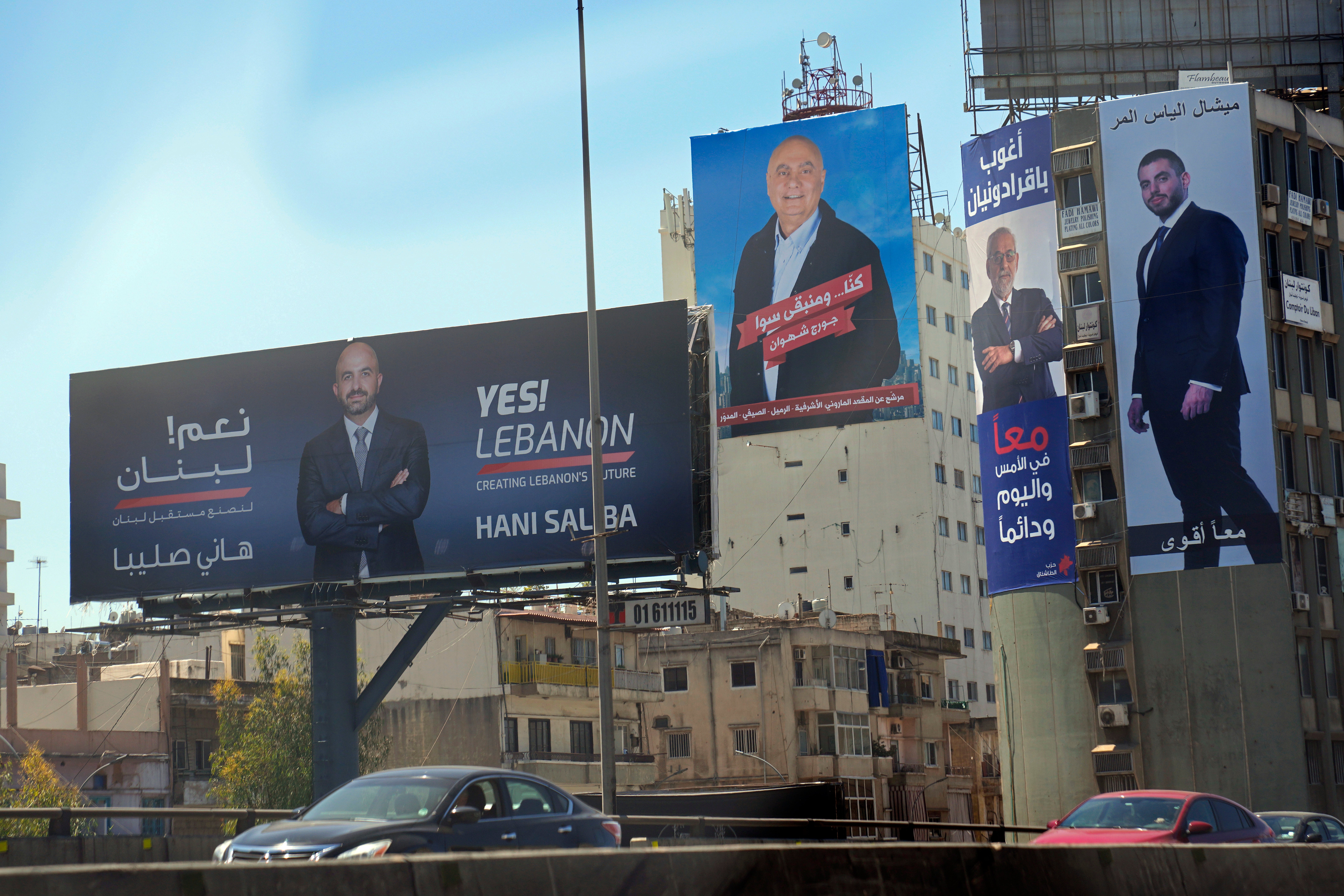Lebanese in 48 countries voting in parliamentary elections
Thousands of Lebanese living in nearly 50 countries began early voting in the country’s closely watched parliamentary elections, days after a similar vote was held in 10 predominantly Muslim nations

Your support helps us to tell the story
From reproductive rights to climate change to Big Tech, The Independent is on the ground when the story is developing. Whether it's investigating the financials of Elon Musk's pro-Trump PAC or producing our latest documentary, 'The A Word', which shines a light on the American women fighting for reproductive rights, we know how important it is to parse out the facts from the messaging.
At such a critical moment in US history, we need reporters on the ground. Your donation allows us to keep sending journalists to speak to both sides of the story.
The Independent is trusted by Americans across the entire political spectrum. And unlike many other quality news outlets, we choose not to lock Americans out of our reporting and analysis with paywalls. We believe quality journalism should be available to everyone, paid for by those who can afford it.
Your support makes all the difference.Thousands of Lebanese living in nearly 50 countries began early voting Sunday in the country’s closely watched parliamentary elections, days after a similar vote was held in 10 predominantly Muslim nations.
About 195,000 Lebanese had registered to vote Sunday in 48 countries including the United States, Canada, Australia, Russia, European Union member states and several African nations.
The vote in Lebanon takes place May 15.
Among those voting Sunday are many Lebanese who fled the country over the past two years during a historic economic meltdown. The downturn has been blamed on decades of corruption and mismanagement by the political class that has been running the small nation since the end of the 1975-90 civil war.
Parliamentary elections are held once every four years and the last vote in 2018 gave majority seats to the powerful Iran-backed Hezbollah group and its allies.
The vote this year for the 128-member legislature is the first since the economic and financial crisis began in October 2019 leading to nationwide protests. It is also the first vote held since the massive Aug. 4, 2020 blast at Beirut’s port that killed more than 200 people, injured thousands and caused widespread damage in the capital.
Little change was expected from the vote as mainstream political parties and politicians remained strong going into the vote while opposition figures are fractured. Western-backed mainstream parties are hoping to strip the parliamentary majority from Hezbollah.
The vote this year comes as a powerful Sunni leader, former Prime Minister Saad Hariri, suspended his work in politics. Some have warned this may help Hezbollah’s Sunni allies to win more seats.
Local media outlets have reported that Hariri has come under pressure from Saudi Arabia to convince his supporters to get out and vote to prevent Hezbollah from benefiting from the vacuum. Saudi Arabia and Hezbollah backer Iran are regional rivals.
A registered 194,348 voters will cast their ballots at 192 polling stations around the world, many of them at Lebanese diplomatic missions.
During Friday's vote, 59.45% of the registered 30,929 voters cast their ballots, according to Foreign Minister Abdallah Bouhabib.
Lebanon’s parliament is equally divided between Christians and Muslims. The new legislature will elect a new president after President Michel Aoun’s term ends in October.
After official results are out following next week's vote in Lebanon, the government of Prime Minister Najib Mikati will become a caretaker administration until the president calls for consultations with newly elected legislators to name a new prime minister. Mikati, who is not running for parliament, could be chosen again.
According to Lebanon’s power-sharing system, the President is a Maronite Catholic, the prime minister is a Sunni and the parliament speaker is a Shiite. Cabinet seats are also equally divided between Muslims and Christians.
More than 70% of the country’s 6 million inhabitants, including 1 million Syrian refugees, now live in poverty as a result of the economic crisis, which was described by the World Bank as one the world's worst since the 1850s.
The crisis made tens of thousands lose their jobs while the Lebanese pound has lost more than 90% of its value since the meltdown began.